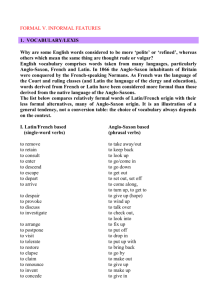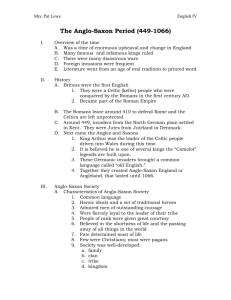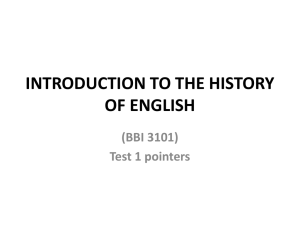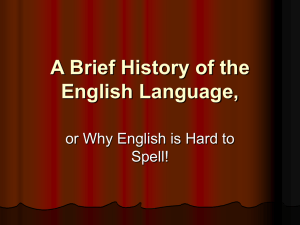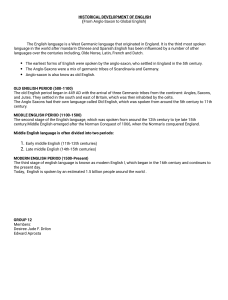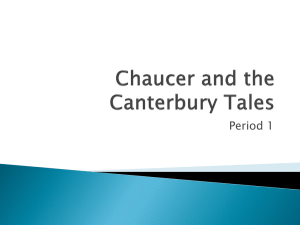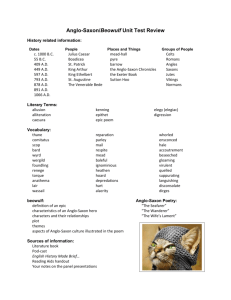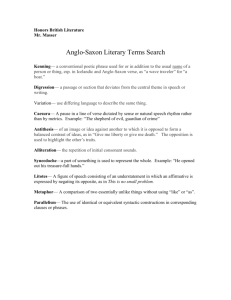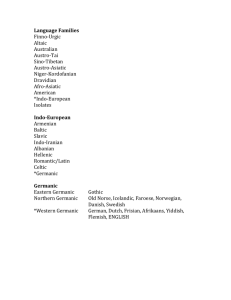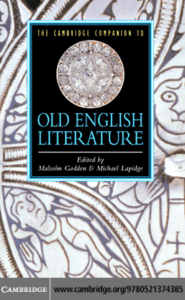Quiz Material
advertisement
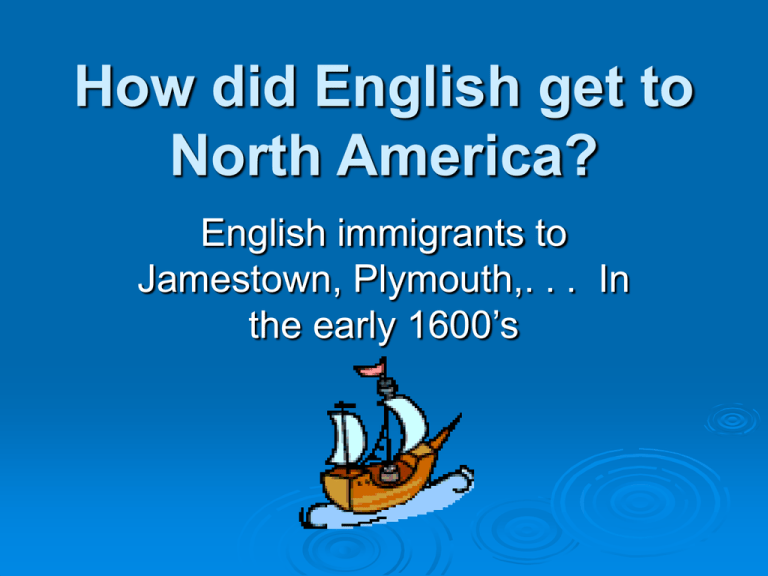
How did English get to North America? English immigrants to Jamestown, Plymouth,. . . In the early 1600’s English is a member of the West Germanic group of the Germanic subfamily of the Indo-European family of languages. Whew! English is the official language of ___?__ nations. about 67 English spread because of British exploration, colonization, and empire building during the Seventeenth Eighteenth And Ninteenth centuries The history of the English Language parallels the history of the English people and the British Islands. In the middle of the fifth century • Tribes of Germanic invaders -- Angles, Saxons, and Jutes - brought their languages across the English Channel to the British Isles. In the sixth century • Christian missionaries arrived in England and brought Latin with them. • Other invaders from Scandinavia established settlements in Britain. By the ninth century • Anglo-Saxon (a dialect spoken in Southern England) had become standard English. Today, • One fifth of the English words we use derive from this Anglo-Saxon English. AngloSaxon But in the eleventh century • The Norman Conquest of Britain brought foreign rulers whose native language was –French. For more than three hundred years, • French was the official language of England. • French was the language of the court. • English was spoken only by peasants. • For example, consider the words “pig” and “pork.” Another half of our English vocabulary is • of French and Romance origins. French/ Romanc e Other AngloSaxon •No, not that kind! There are three periods of English: 1. Old English or Anglo-Saxon to c. 1150. 2. Middle English to c. 1500. 3. Modern English to today. An Englishman of 1300 wouldn’t have understood the English of 500; nor would he understand the English we speak today. Here’s an example of changes in English pronunciation: • The word name • In Old English was pronounced nämä (the a as in fäther) • In Middle English was pronounced näme (fäther) + (sofa) In Modern English, is pronounced nām Vocabulary Sources of the English Language Words come from all over! From Anglo-Saxon English bread, good, shower, home, stones, fox From Latin Christianity priest, bishop, anthem, candle, epistle, hymn From Scandinavian Settlers Husband, sky, skin, club, gape, root, egg, take, give, window, leg, skin, crawl, die, sister From Norman French and Vulgar Latin Legal terms: judge, jury, tort, attorney, crime, assault Terms of rank: prince, duke, baron, parliament, countess Others: honor, courage, season, manner, study, castle. . . From Latin and Greek during the Renaissance and after Words for science, invention, and technology: conifer, cyclamen, helium, halogen, intravenous, isotope, metronome, polymer, telephone tobacco The word “tobacco” comes from the Arabic for “euphoriacausing herb.” Euphoria (from the Greek) means a feeling of happiness or well-being. Tell that to someone in the hospital with lung cancer from smoking cigarettes! Then again, perhaps that’s why people have such a hard time quitting once they start smoking. I looked up the Etymology of the word “like” as in “I sure like chocolate!” I found out it comes from the Old English word “lician,” which means “to please, to be sufficient.”
